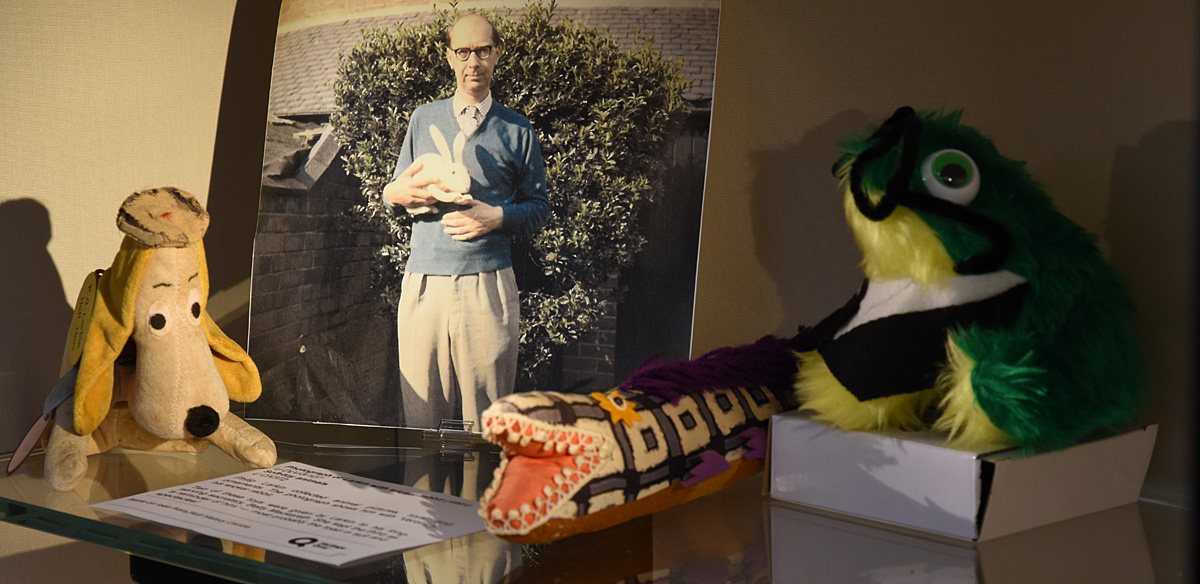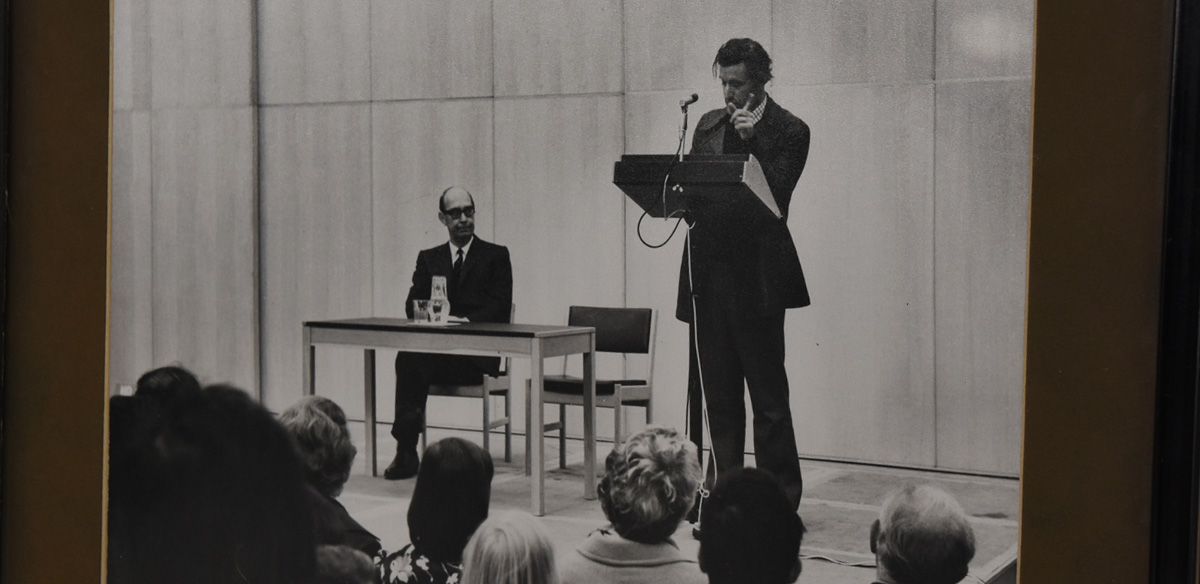‘Larkin and Hughes: Poets and Rivals’ is an exhibition, on display in the University’s Heritage Quay, is a “major contribution to Hughes-Larkin scholarship” – The exhibition runs to the 21 July

THE two men widely regarded as England’s finest post-war poets had a grudging mutual respect … but they were also prepared to bad mouth each other. Philip Larkin described Ted Hughes as “a great thug of a man”. Hughes called Larkin “a sour old cuss”. Now, the relationship between the duo – and their immense but contrasting literary legacy – has been charted by a team of students at the University of Huddersfield.
They have curated an innovative exhibition that has already won praise from major scholars. On display at the University’s Heritage Quay archive centre – open to the public – it includes many first editions and limited editions of seminal works by Hughes and Larkin, plus correspondence between the two poets and letters to third parties that use characteristically colourful language to reveal their feelings about each other.
There are also many artefacts, including Larkin’s eccentric collection of toy animals, and some evocative illustrations, including a photograph of a glum Larkin chairing a poetry reading by Hughes. Larkin had this picture framed and hung it in his toilet, according to the exhibition caption.
Larkin and Hughes: Poets and Rivals was curated by 42 third-year English Literature and Creative Writing students as part of their Public Humanities module. The project was co-ordinated by Heritage Quay’s David Smith and by Senior Lecturer Dr James Underwood, who has a research speciality in the poetry of Larkin and Hughes and who is Deputy Director of the Ted Hughes Network based at the University of Huddersfield.
The students had access to the valuable collection of Hughes limited editions collected by the Network and archived at Heritage Quay. They also collaborated with the Philip Larkin Society and with Hull History Centre, which houses the Larkin Archive at the University of Hull, where the poet was librarian for many years. This enabled the curators to include unique editions and manuscripts in the exhibition, which also has interpretational texts and timelines outlining the careers of the two poets.
Poets and Rivals

Dr Underwood praised the students’ achievement in curating the exhibition.
“There has been a lot of research on Larkin and a lot of research on Hughes, but not a lot of research on the personal relationship or the critical relationship between these two poets, who represent the different directions taken by British poetry after 1945,” he said.
The exhibition does include letters in which Hughes is polite and respectful about Larkin. “There is a really touching letter from Hughes when Larkin was dying, suggesting a healer who performs miracle cures. Larkin was never going to take him up on that offer because of his rationalist approach to life, but it’s very moving nonetheless,” said Dr Underwood.
“It’s harder to find Larkin being nice about Hughes,” he continued. “He had a lot of fun teasing Hughes and making disparaging comments. This was part of Larkin’s grumpy public persona.”
A letter in 1975 had Larkin stating that Hughes had paid a visit to Hull, “looking like a Christmas present from Easter Island. He’s all right when he is not reading!”.
The exhibition includes a 1984 letter from Prime Minister Margaret Thatcher, offering Larkin the role of Poet Laureate, plus the reply in which he declined on the grounds that “seven years ago the impulse to write poems left me”.
But Ted Hughes did accept the post and took it very seriously.
“He saw the role of Poet Laureate as a deeply profound one. He thought that the monarchy was the unifier of the nation and therefore the Laureate was the singer of the tribe,” said Dr Underwood. The exhibition includes examples of his work in this public post.
Early visitors to Larkin and Hughes: Poets and Rivals have included Professor James Booth, the critically-acclaimed biographer of Philip Larkin.
“He said that he learned things from this exhibition. So if we are teaching Larkin’s biographer then we are doing something right!” said Dr Underwood. “The exhibition does something genuinely new and interesting and is a good contribution to Hughes-Larkin scholarship,” he added.
- Larkin and Hughes: Poets and Rivals continues at Heritage Quay until 21 July.
More news
New book adds to Uni’s Ted Hughes Collection
'A Bundle of Birds', is an important addition to what is now a world-class collection of limited editions of the poet’s work
Articles probe life of Poet Laureate Ted Hughes
The work of Dr Steve Ely and Dr James Underwood considers Hughes as a “parochial” poet and his time undertaking
Poet grateful for Uni’s Ted Hughes Network
Awarding-winning poet and author Christopher Reid said receiving the Honorary Doctorate of the University was one of his proudest achievements
